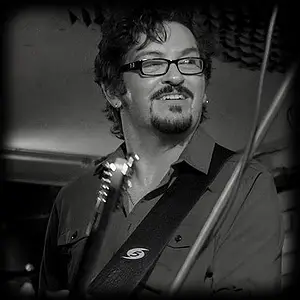Mike Zito
 Mike Zito’s emergence as a force in the blues world is confirmation of how hard work, talent and drive can compensate for a rough beginning in life. The phrase ‘singing the blues’ is often used as a metaphor for crying and complaining about troubles in one’s life. But Mike Zito has made a life for himself by singing the blues – without “singing the blues.” In other words, he makes a living rising above his hardships in life, not wallowing in them.
Mike Zito’s emergence as a force in the blues world is confirmation of how hard work, talent and drive can compensate for a rough beginning in life. The phrase ‘singing the blues’ is often used as a metaphor for crying and complaining about troubles in one’s life. But Mike Zito has made a life for himself by singing the blues – without “singing the blues.” In other words, he makes a living rising above his hardships in life, not wallowing in them.
Hard Times
Zito’s background as a child growing up in St. Louis Missouri was less than ideal in many ways. The exposure to drug and alcohol abuse created demons he would regret later in life. But there was also the difficulty he had finding his way as a musician.
The Tough Road
But Mike Zito’s path to success was a difficult one. A young father and husband, he played in a number of bands in his twenties. He says, “I just wanted to play guitar: country, blues, rock and roll, it didn’t matter. But at heart Zito was, and is, a blues man. And when his friendship with Devon Allman (son of blues-rock legend Greg Allman) led to a bigger project, the result was a deeply memorable blues band called the Royal Southern Brotherhood.
Band of (Southern) Brothers
War No More
Make Blues Not War is Zito’s thirteenth album. And it sounds very much like the veteran guitar man is having the time of his life, rocking and reeling through a breathtakingly diverse range of styles and subgenres. The album is lively and fresh, surprising the listener at every turn while somehow delivering exactly what they need.
Like Father Like Son
Make Blues Not War is Mike Zito’s first album since breaking away from The Royal Southern Brotherhood. Although he wasn’t exactly hamstrung while rocking with the Brotherhood, his thirteenth album does sound quite liberating. The vocals howl with delight and the guitar slashes like a razor. This is no album for the blues beginner. Enter this album at your own risk.
The title track has an understand sense of joy and “Highway Mama” crackles with Zeppelin-like cool. But the song that cuts the deepest is “Road Dog,” doubtlessly a tune based on Zito’s own life as an itinerant blues man. Its sense of despair tinged with an unshakable individuality makes the album worth the price.
As an Amazon Associate I earn from qualifying purchases.
When asked about what kind of advice he’s supplied for his son, Mike Zito’s answer harkens back to an earlier darker period in his life. “I don’t mean it to sound as corny as maybe it sounds, but I think the biggest mistakes I made was drinking too much and doing drugs. I had a lot of these chances that I was very fortunate to get again. I had them earlier on when I was in my 20s, and the mistakes I made was too much of the partying. Of course, he has a much better opportunity than I did, because I can help him kind of get started or get into whatever the business is.”